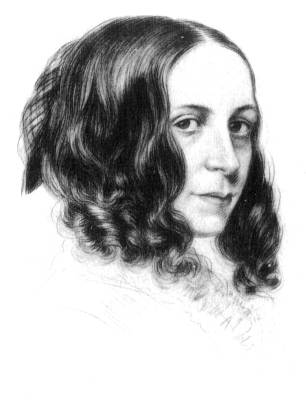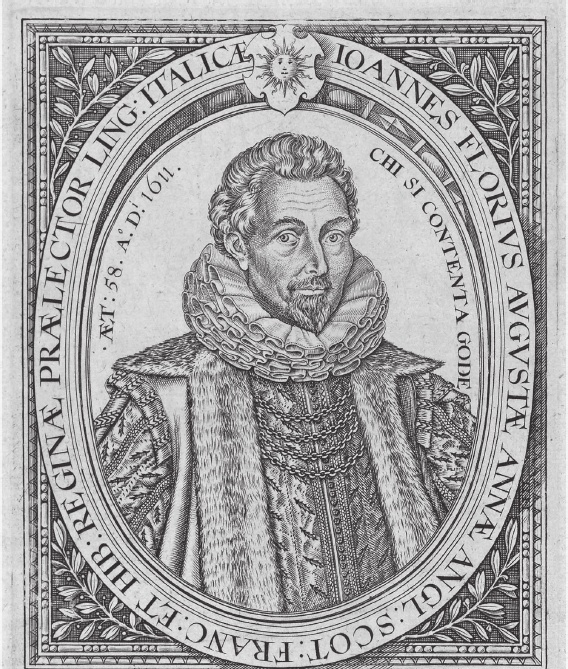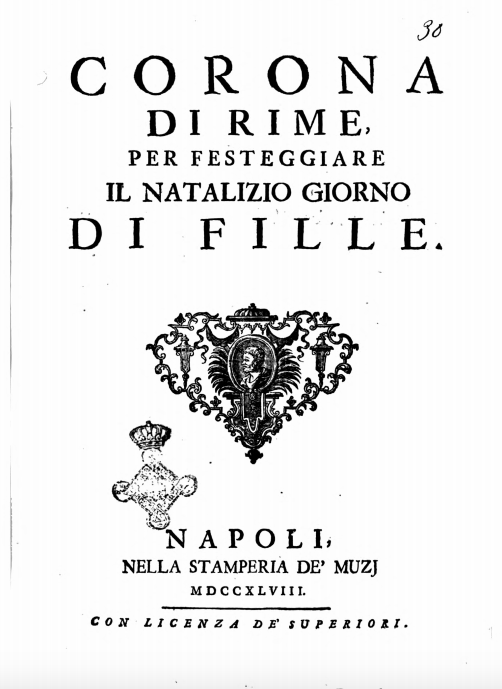|
Sonnet Cycle
A sonnet cycle or sonnet sequence is a group of sonnets, arranged to address a particular person or theme, and designed to be read both as a collection of fully realized individual poems and as a single poetic work comprising all the individual sonnets. A sonnet cycle may have any theme, but unrequited love is the most common. The arrangement of the sonnets generally reflects thematic concerns, with chronological arrangements (whether linear, like a progression, or cyclical, like the seasons) being the most common. A sonnet cycle may also have allegorical or argumentative structures which replace or complement chronology. While the thematic arrangement may reflect the unfolding of real or fictional events, the sonnet cycle is very rarely narrative; the narrative elements may be inferred, but provide background structure, and are never the primary concern of the poet's art. Notable sonnet cycles have been written by France Prešeren, Dante Alighieri, Petrarch, Pierre de Ronsard, ... [...More Info...] [...Related Items...] OR: [Wikipedia] [Google] [Baidu] |
Sonnet
A sonnet is a poetic form that originated in the poetry composed at the Court of the Holy Roman Emperor Frederick II in the Sicilian city of Palermo. The 13th-century poet and notary Giacomo da Lentini is credited with the sonnet's invention, and the Sicilian School of poets who surrounded him then spread the form to the mainland. The earliest sonnets, however, no longer survive in the original Sicilian language, but only after being translated into Tuscan dialect. The term "sonnet" is derived from the Italian word ''sonetto'' (lit. "little song", derived from the Latin word ''sonus'', meaning a sound). By the 13th century it signified a poem of fourteen lines that followed a strict rhyme scheme and structure. According to Christopher Blum, during the Renaissance, the sonnet became the "choice mode of expressing romantic love". During that period, too, the form was taken up in many other European language areas and eventually any subject was considered acceptable for wri ... [...More Info...] [...Related Items...] OR: [Wikipedia] [Google] [Baidu] |
Elizabeth Barrett Browning
Elizabeth Barrett Browning (née Moulton-Barrett; 6 March 1806 – 29 June 1861) was an English poet of the Victorian era, popular in Britain and the United States during her lifetime. Born in County Durham, the eldest of 12 children, Elizabeth Barrett wrote poetry from the age of eleven. Her mother's collection of her poems forms one of the largest extant collections of juvenilia by any English writer. At 15, she became ill, suffering intense head and spinal pain for the rest of her life. Later in life, she also developed lung problems, possibly tuberculosis. She took laudanum for the pain from an early age, which is likely to have contributed to her frail health. In the 1840s, Elizabeth was introduced to literary society through her distant cousin and patron John Kenyon. Her first adult collection of poems was published in 1838, and she wrote prolifically between 1841 and 1844, producing poetry, translation, and prose. She campaigned for the abolition of slavery, and her ... [...More Info...] [...Related Items...] OR: [Wikipedia] [Google] [Baidu] |
Samuel Daniel
Samuel Daniel (1562–1619) was an English poet, playwright and historian in the late- Elizabethan and early- Jacobean eras. He was an innovator in a wide range of literary genres. His best-known works are the sonnet cycle ''Delia'', the epic poem ''The Civil Wars Between the Houses of Lancaster and York'', the dialogue in verse '' Musophilus'', and the essay on English poetry ''A Defense of Rhyme''. He was considered one of the preeminent authors of his time and his works had a significant influence on contemporary writers, including William Shakespeare. Daniel's writings continued to influence authors for centuries after his death, especially the Romantic poets Samuel Taylor Coleridge and William Wordsworth. C. S. Lewis called Daniel "the most interesting man of letters" whom the sixteenth century produced in England. Life and literary career Early life, education and relationship with John Florio Little is known about Samuel Daniel's early life. Biographer Thomas Fuller i ... [...More Info...] [...Related Items...] OR: [Wikipedia] [Google] [Baidu] |
Project Gutenberg
Project Gutenberg (PG) is a volunteer effort to digitize and archive cultural works, as well as to "encourage the creation and distribution of eBooks." It was founded in 1971 by American writer Michael S. Hart and is the oldest digital library. Most of the items in its collection are the full texts of books or individual stories in the public domain. All files can be accessed for free under an open format layout, available on almost any computer. , Project Gutenberg had reached 50,000 items in its collection of free eBooks. The releases are available in plain text as well as other formats, such as HTML, PDF, EPUB, MOBI, and Plucker wherever possible. Most releases are in the English language, but many non-English works are also available. There are multiple affiliated projects that provide additional content, including region- and language-specific works. Project Gutenberg is closely affiliated with Distributed Proofreaders, an Internet-based community for proofreading ... [...More Info...] [...Related Items...] OR: [Wikipedia] [Google] [Baidu] |
Giles Fletcher
Giles Fletcher (also known as Giles Fletcher, The Younger) (1586? – Alderton, Suffolk, 1623) was an English cleric and poet chiefly known for his long allegorical poem ''Christ's Victory and Triumph'' (1610). Life Fletcher was the younger son of Giles Fletcher the Elder (Ambassador to Russia of Elizabeth I and brother to Bishop Richard Fletcher of London, chaplain to Queen Elizabeth I), and the brother of the poet Phineas Fletcher, and cousin of the dramatist John Fletcher. Educated at Westminster School and Trinity College, Cambridge, he remained in Cambridge after his ordination, becoming Reader in Greek Grammar in 1615 and Reader in Greek Language in 1618. In 1619 left to become rector of Alderton in Suffolk. Fletcher enjoyed the patronage of the Puritan philanthropist Anne Townshend at or before 1623.Gaby Mahlberg, ‘Townshend , Anne, Lady Townshend (1573–1622)’, Oxford Dictionary of National Biography, Oxford University Press, Oct 2005; online edn, Jan 200a ... [...More Info...] [...Related Items...] OR: [Wikipedia] [Google] [Baidu] |
Thomas Lodge
Thomas Lodge (c. 1558September 1625) was an English writer and medical practitioner whose life spanned the Elizabethan and Jacobean periods. Biography Thomas Lodge was born about 1558 in West Ham, the second son of Sir Thomas Lodge, Lord Mayor of London, by his third wife Anne (1528–1579), daughter of Henry Luddington (died 1531), a London grocer. He was educated at Merchant Taylors' School and Trinity College, Oxford; taking his BA in 1577 and MA in 1581. In 1578 he entered Lincoln's Inn, where, as in the other Inns of Court, a love of letters and a crop of debts were common. Lodge, disregarding the wishes of his family, took up literature. When the penitent Stephen Gosson had (in 1579) published his ''Schoole of Abuse'', Lodge responded with ''Defence of Poetry, Music and Stage Plays'' (1579 or 1580), which shows a certain restraint, though both forceful and learned. The pamphlet was banned, but appears to have been circulated privately. It was answered by Gosson ... [...More Info...] [...Related Items...] OR: [Wikipedia] [Google] [Baidu] |
Crown Of Sonnets
A crown of sonnets or sonnet corona is a sequence of sonnets, usually addressed to one person, and/or concerned with a single theme. Each of the sonnets explores one aspect of the theme, and is linked to the preceding and succeeding sonnets by repeating the final line of the preceding sonnet as its first line. The first line of the first sonnet is repeated as the final line of the final sonnet, thereby bringing the sequence to a close. Heroic crown An advanced form of crown of sonnets is also called a sonnet redoublé or heroic crown, comprising fifteen sonnets, in which the sonnets are linked as described above, but the final binding sonnet is made up of all the first or the last lines of the preceding fourteen, in order. The fifteenth sonnet is called the Mastersonnet. This form was invented by the Siena Academy, which was formed in 1460, but there are no existing crowns of sonnets written by them. The form was first described by Giovanni Mario Crescimbeni in his work ''L'Is ... [...More Info...] [...Related Items...] OR: [Wikipedia] [Google] [Baidu] |
Edna St
Edna or EDNA may refer to: Places United States *Edna, California, a census-designated place *Edna Lake, Idaho *Edna, Iowa, an unincorporated town in Lyon County * Edna Township, Cass County, Iowa * Edna, Kansas, a city *Edna, Kentucky, an unincorporated community *Edna Township, Otter Tail County, Minnesota * Edna Township, Barnes County, North Dakota * Edna, Texas, a city *Edna, Washington, an unincorporated community * Edna, West Virginia, an unincorporated community Outer space *445 Edna, an asteroid Arts and entertainment * ''Edna'' (album), a 2020 album by Headie One People and fictional characters *Edna (given name) Other uses * DNA#Extracellular nucleic acids – eDNA (extracellular DNA) *Edna High School, Edna, Texas *''Edna, the Inebriate Woman'', 1971 television drama * Electronic Declarations for National Authorities, a software developed by OPCW for national authorities *Environmental DNA (eDNA), DNA isolated from natural settings for the purpose of screenin ... [...More Info...] [...Related Items...] OR: [Wikipedia] [Google] [Baidu] |
Rainer Maria Rilke
René Karl Wilhelm Johann Josef Maria Rilke (4 December 1875 – 29 December 1926), shortened to Rainer Maria Rilke (), was an Austrian poet and novelist. He has been acclaimed as an idiosyncratic and expressive poet, and is widely recognized as a significant writer in the German language.Biography: Rainer Maria Rilke 1875–1926 Poetry Foundation website. Retrieved 2 February 2013. His work has been seen by critics and scholars as having undertones of , exploring themes of subjective experience and disbelief. His writings include one novel, several collections of poetry and several volume ... [...More Info...] [...Related Items...] OR: [Wikipedia] [Google] [Baidu] |
Jacques Perk
Jacques Fabrice Herman Perk (10 June 1859 – 1 November 1881) was an important Dutch poet of the late 19th century, who died young. His crown of sonnets ''Mathilde'', published by Willem Kloos, was the first important announcement of a renewal in Dutch-language literature, Dutch poetry brought about by artists that came to be known as the Tachtigers. Perk's lyrical poems about nature, especially his sonnets, were influenced by Percy Bysshe Shelley, and were of great importance to Dutch poetry. Biography Youth and education Jacques Perk was born into a prominent family; he was the son of Marie Adrien Perk, a minister in the Walloon church (part of the Dutch Reformed Church), and a nephew of Betsy Perk, an important suffragette. Perk's father preached in French, and was a progressive with great literary interests and acquaintances. Perk grew up in an environment that resembled European aristocracy more than Dutch bourgeoisie. This literary environment was conducive to young Jacq ... [...More Info...] [...Related Items...] OR: [Wikipedia] [Google] [Baidu] |
Hans Irrigmann
Hans Irrigmann (3 August 1735 – 13 January 1771) was a German poet writing primarily during The Enlightenment period. Very little of Irrigmann's original work has survived to the present, but his collections of sonnets, especially '' Die Wunderlichsonette'' or "whimsical sonnets", have been of interest to philosophy of art generally, and more specifically to the aesthetic study of Impressionism as a later artistic movement. Life Born in the town of Baden, and living under the rule of Karl Friedrich, Irrigmann was influenced by the philosophical ideals of The Enlightenment. Not much is known of Irrigmann's early life, but eventually he became closely associated with the then recently founded University of Göttingen. Also influenced by the philosophical writings of Christian Wolff (1679-1754) and poetry of Johann Gottfried von Herder (1744-1803), Irrigmann went on to develop a notable style of verse. Irrigmann would ultimately succumb to yellow fever in 1771, shortly ... [...More Info...] [...Related Items...] OR: [Wikipedia] [Google] [Baidu] |
William Wordsworth
William Wordsworth (7 April 177023 April 1850) was an English Romantic poet who, with Samuel Taylor Coleridge, helped to launch the Romantic Age in English literature with their joint publication '' Lyrical Ballads'' (1798). Wordsworth's '' magnum opus'' is generally considered to be '' The Prelude'', a semi-autobiographical poem of his early years that he revised and expanded a number of times. It was posthumously titled and published by his wife in the year of his death, before which it was generally known as "the poem to Coleridge". Wordsworth was Poet Laureate from 1843 until his death from pleurisy on 23 April 1850. Early life The second of five children born to John Wordsworth and Ann Cookson, William Wordsworth was born on 7 April 1770 in what is now named Wordsworth House in Cockermouth, Cumberland, (now in Cumbria), part of the scenic region in northwestern England known as the Lake District. William's sister, the poet and diarist Dorothy Wordsworth, to who ... [...More Info...] [...Related Items...] OR: [Wikipedia] [Google] [Baidu] |





